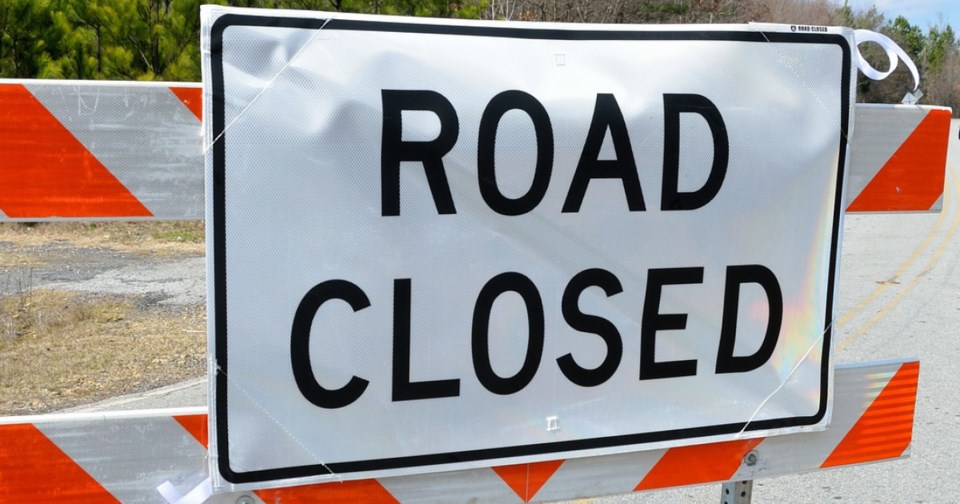As the Pasqua First Nation is working to keep its elders healthy and free of COVID-19, it’s also contending with people trying to sneak onto its land by using ATVs to go around security checkpoints.
“I don't know if it's band members; (they) are trying to sneak around on their ATVs, the four-wheelers. (Security guards) have been trying to catch them,” councillor Cindy Desnomie said. She manages Pasqua’s health and justice files.
As part of its emergency response plan, developed under the late Chief Elaine Chicoose during the H1N1 pandemic in 2009, the First Nation decided on security checkpoints to track members’ comings and goings, ensuring that only members and their spouses enter or leave.
On March 13, current Chief Todd Peigan, along with the housing manager and public works manager, put the plan into action, including 24-hour checkpoints.
Security guards patrol five entranceways onto Pasqua during 12-hour shifts, using barricades and signage to control traffic. They’ve also put up heavy, concrete blockades at gravel and dirt roads leading into the community.
Every person trying to enter or leave is supposed to stop at a checkpoint, Desnomie said.
“(Guards) get their names, where they're going, the approximate time they'd be back and their licence plate number.”
Non-members are denied entry.
The plan, which includes a 10 p.m. to 7 a.m. curfew for all members, has so far worked.
Pasqua administrators put nine families in self-isolation for two weeks; it tested three people for infection. All tests came back negative, and the community has yet to see a case of the virus.
“Some people are pretty upset that they have to stop and they have to report in … but it's for the safety of the community, and Chief lets them know that,” she said.
Ensuring Pasqua’s elders stay healthy is a key concern. Desnomie said First Nations peoples’ chronic health issues make them a vulnerable population. She included conditions like diabetes and heart disease.
“We're trying to keep (our elders) safe and we know they're a vulnerable population within our communities. They're a valuable resource for us to go back to … for the big decisions we make,” she said.
That’s why they’re paying attention to those people sneaking around at night.
“I know there have been issues the Chief has mentioned before,” Desnomie said. “People trying to come on the reserve at 3 or 4 in the morning, or leave the reserve … he said there's investigations going on with the RCMP.”
The community, which has 2,470 registered members, is located about 70 kilometres northeast of Regina.
The Muscowpetung Saulteaux Nation is directly west of Pasqua; it has 1,496 registered members.
Muscowpetung’s emergency services co-ordinator, Jim Pratt, said his community had an emergency services plan ready back in November. It covers everything from extreme weather to fires to pandemics. The plan is where the First Nation started to decide how to tackle the COVID-19 crisis.
It was around mid-March, when the province started seeing its first cases, that Muscowpetung realized it needed to put the plan into action.
The plan includes identifying people in the community with backgrounds to complete needed tasks; ensuring people are available to answer questions, provide facts and address community concerns; encouraging community members to practise social distancing; and keeping tabs on who comes and goes from the First Nation.
“Our people are free to come and go in our community, however there’s no social gathering or visiting …,” Pratt said. “We didn’t want our elders to pick up this sickness, this virus, or our most vulnerable people that have respiratory illnesses or any other illnesses.”
Signs posted on reserve provide information on Muscowpetung’s COVID-19 response for those attempting to enter the community. Those on reserve are asked to stay home whenever possible and self-isolate for 14 days if experiencing symptoms or returning from travel.
The 16-member security team is equipped with personal protective equipment and questionnaires to ensure they ask the right questions of community members.
Security members are watching the entrances to Muscowpetung, providing information, denying access to non-members and gathering information on those entering to allow for tracking, should an infection break out.
Pratt said Muscowpetung has also asked members to restrict off-reserve shopping trips to two people, with only one going into the store. They are to return as soon as they’re done and not offer a lift to anyone.
“These are some of the rules that we have out there, and our security team tries their best to enforce these rules …,” Pratt said. “We’re trying to do our best to fight this virus.”
He said his members, like other police and security teams, struggle with a handful of people who don’t obey calls to self-isolate.
“It’s frustrating …,” he said. “It’s a show of disrespect to the team and disrespect to their own community.”




